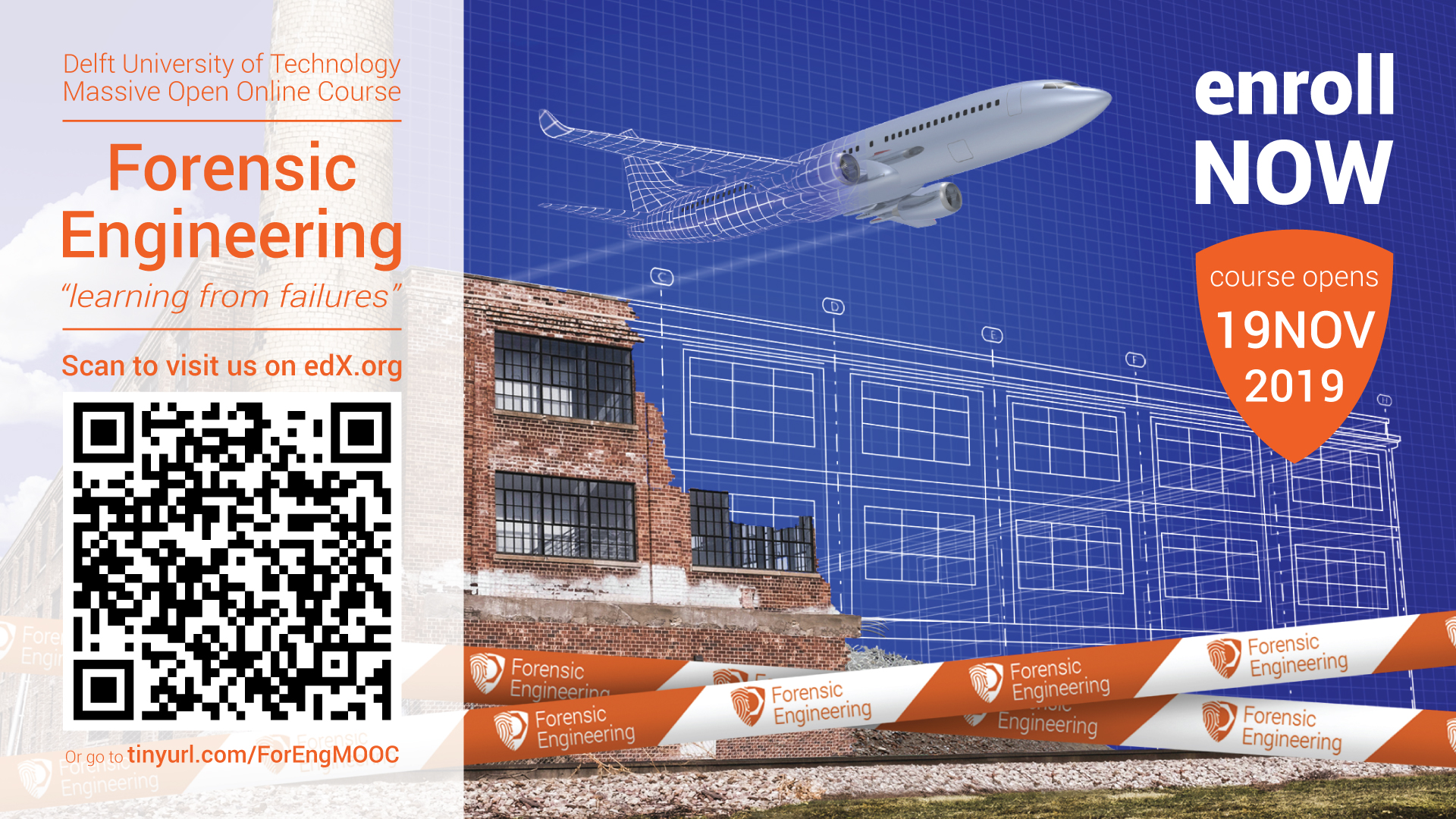The Delft approach to Forensic Engineering
Karel Terwel (CEG), Michiel Schuurman (AE) and Arjo Loeve (3ME) won a prestigious ICE Publishing Award for their joint work on ‘Improving reliability in forensic engineering: the Delft approach’. In the article, they describe the three main elements of the Delft approach, which in turn are based on insights gained from their respective fields of civil engineering, aerospace engineering and biomechanical engineering. Starting 19 November 2019, the MOOC ‘Forensic Engineering: Learning from Failures’ will run for the third time. This MOOC takes its lead from the insights described in the article on the Delft approach.
Delft approach
The TU Delft approach to Forensic Engineering is an integrated approach consisting of three elements. It combines the different phases of the life cycles of technical systems, the acknowledgement that failure is a multifaceted phenomenon, and the use of a standard investigative approach.
Also, the approach combines established theories from literature and best practices of forensic investigations in aerospace engineering, civil engineering and biomechanical engineering.
The winning paper presented the Delft approach for forensic investigations and explains how to use it to prevent several common pitfalls and biases that occur in various stages of a forensic engineering investigation. With this approach Terwel, Schuurman and Loeve aim to increase the reliability of forensic engineering investigations worldwide. Loeve: “Perhaps for me the nicest and most fruitful collaboration here at TU Delft so far. And above all the most interfaculty collaboration”.
MOOC Forensic Engineering
Since its start in 2017, the related MOOC has welcomed between 3.000 and 4.000 participants each year, with a relatively high percentage of people that also went for a certificate. Participants had a great variety of backgrounds ranging from high school students, students who wanted to do it as a secondary subject, lawyers, forensic investigators, pilots, civil engineers, doctors and clinical staff. Their main overall aim is to learn how to analyze failures of technical systems to repair and prevent failure in the future.
Loeve: “The MOOC was a result of many hours of discussions about what the method should look like to be used independently of the field in which the method was to be applied. Then we still had to start the many hours of filming and working out assignments. Luckily our student assistants were of great help.” The development of the MOOC was supported by the Extension School and TU Delft Safety & Security Institute.
Exceptional quality
Each year, ICE Publishing acknowledges the best work published in their journals at the ICE Publishing Awards ceremony. The winning publications are judged to be of exceptional quality by their peers and benefit to the civil engineering, construction and materials science community. Out of no less than 4.000 publication the publication of Terwel, Schuurman and Loeve was one of the award winners.
As an award winning paper the ICE made the publication publicly available. It can be accessed at https://www.icevirtuallibrary.com/doi/10.1680/jfoen.18.00006
You can register for the MOOC 2019, starting November 19. See the MOOC website for more information > https://www.edx.org/course/forensic-engineering-learning-from-failures


